Future Roots: The farm that helps young people grow
Julie Plumley
Tuesday, July 26, 2022
Future Roots gives children who struggle to cope in school the chance to learn and develop through farming. Founder Julie Plumley explains how countryside activities help transform young lives.
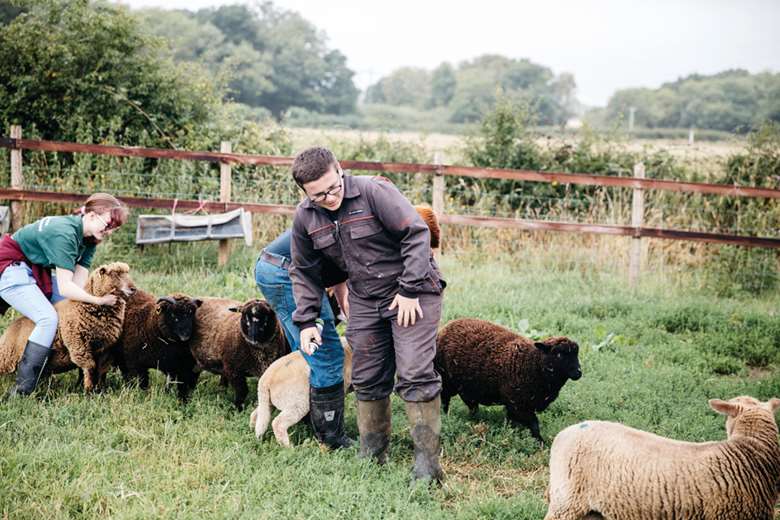
The 25 years I spent as a social worker convinced me that if you could provide a safe, positive learning environment for young people, particularly those experiencing high levels of adversity, then you could really make a difference to someone’s life.
Growing up on a Dorset farm I had first-hand experience of the unique environment farming provides and 13 years ago I resolved to give young people at risk some of the same opportunities.
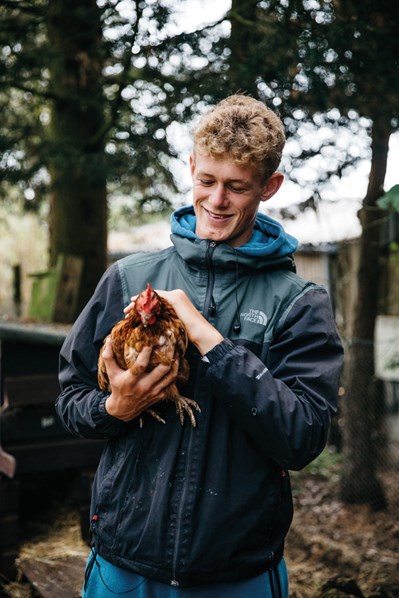
My husband and I bought Rylands Farm, 30 acres of farmland in the beautiful hamlet of Holnest, just outside Sherborne in Dorset and it was here Future Roots was born. We work with disadvantaged young people aged eight to 18 and aim to provide a safe place where they can learn, achieve and feel valued.
Covid restrictions have made children scared of hugging but here at Future Roots young people can hug the animals and its something even our older teenagers love to do.
The majority come to us aged 14 and are referred by learning centres, schools and social workers across Dorset and Somerset. We work regularly with 16 schools.
Many of the young people have special educational needs and disabilities. They may be dyslexic or have undiagnosed autism or speech and language difficulties. Often they are referred for behaviour issues and many are on the edge of exclusion or have been excluded from school for a short time or permanently.
Some are looked-after young people but many have lost a parent in some way or have no contact with parents. Some are living in poverty, some are experiencing neglect and emotional abuse but don’t meet the thresholds for statutory support, some are being exploited and encouraged to get involved in drugs. Many self-harm and either won’t engage with mental health services or do not meet the threshold. We have found boys in particular do not like to talk in clinical settings and are far more relaxed in expressing themselves in open spaces.
The young people have often felt rejected, that they don’t belong anywhere and have a sense of hopelessness and fear. We aim to become a form of “sat nav” for them, going on their journey at their pace. There are times where we need to help them re-route to avoid a crash or where they might get stuck in the mud. But we’re proud of the fact that to date no young person has been excluded or prevented from attending the farm once they are a participant.
When a referral comes in, we arrange a visit with the family and young person or professional to identify what the young person wants to achieve, their concerns and their strengths. We then look for a session or programme that complements the young person’s needs. This may be a group or one-to-one session but crucially, it must also fit in with any other education or learning they are doing.
Many young people would never have thought of attending a farm and have no experience of this environment. Most come because they like animals but some have sensory issues and find wearing personal protective equipment and the smells difficult to manage initially. But they almost always get over the hurdles so they can be part of the team. Belonging, helping, being valued is so important that it overrides concerns and fears.
Some young people attend Future Roots for three days a week, up to a maximum of 15 hours. During the first six weeks, the team carry out an assessment, concentrating on a young person’s strengths. Using our organisation’s specially developed resilience model, they will work to create a feeling of safety and belonging for that young person while providing them with a unique set of life opportunities that come from working on the farm.
This approach, together with the opportunity to gain functional skills qualifications in English and Maths and take a City & Guilds in land-based operations, means young people leave Future Roots ready for work or more education.
Reviews are completed at six and 12 weeks and we constantly record and assess the impact we are having.
At 12 weeks we see a difference in young people’s behaviour and confidence – like many short-term programmes – but our goal is for positive changes to be sustained and become the norm.
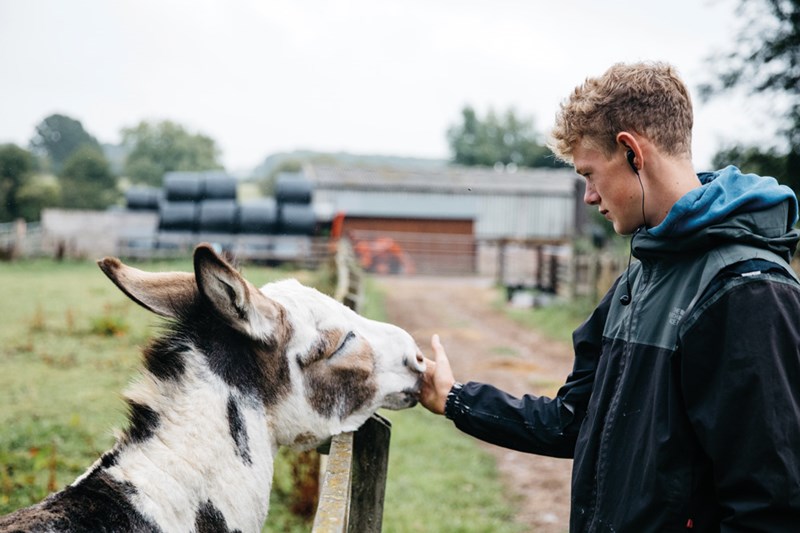
We see the greatest impact when young people are here for a year or more and attend one or two sessions per week.
In conjunction with local schools we also run 13-week short-break courses designed to complement young people’s education and demonstrate the opportunities farming can offer.
Two years ago we launched our Futures programme to support young people into employment or further training.
We found many were unable to get into college courses or apprenticeships because they didn’t have Maths or English qualifications or any idea of how to write a CV and get references.
The Futures programme provides them with work experience here at the farm and elsewhere as well as the chance to gain qualifications. 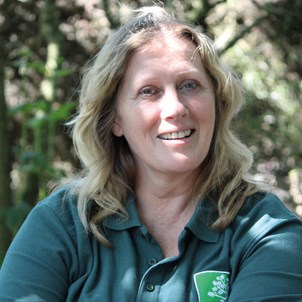
Ten young people have gone through the programme so far. Five have since completed their first year in college while three are in employment and one is doing a government-funded Kickstart programme here at the farm. One left the course to have a baby.
The staff team is made up of people with a variety of work experience and of different ages which we feel is an essential part of the model. We work under a social work model involving regular supervision for staff and have the support of a clinical and forensic psychologist to help them manage secondary trauma, prevent burnout and remain positive. We have regular team training and team meetings and staff can also undertake individual training.
We are lucky in that Dorset has some very forward-thinking child-focused schools that believe in the work we do and have seen the benefit over the past 13 years.
Sometimes alternative education provision is wrongly put in the same bracket with illegal schools but there is a world of difference between the two.
Good alternative education provision is not there to replace mainstream provision. It is a resource that complements what schools can provide and in many cases prevents exclusions by providing learning opportunities that help young people re-engage with education.
An alternative learning environment can be especially important for those who have experienced trauma or are seen as having failed.
Young people need to know that when a school makes a referral it’s not because they are “mad, bad or sad” it’s because they believe in the young person and see their potential.
We work closely with all commissioners of our services – and schools in particular – to determine outcomes, record and report and support key transitions. We attend meetings where possible and offer the farm as a venue for those families who find the school environment difficult.
Often teachers will come to the farm and see the young person in a very different light. Uncovering difficulties the teaching team just don’t have the time to identify can help them understand what might work in school.
We have also worked closely with individual social workers and youth offending team workers. We often have meetings at the farm and offer young offenders the opportunity to do reparation here.
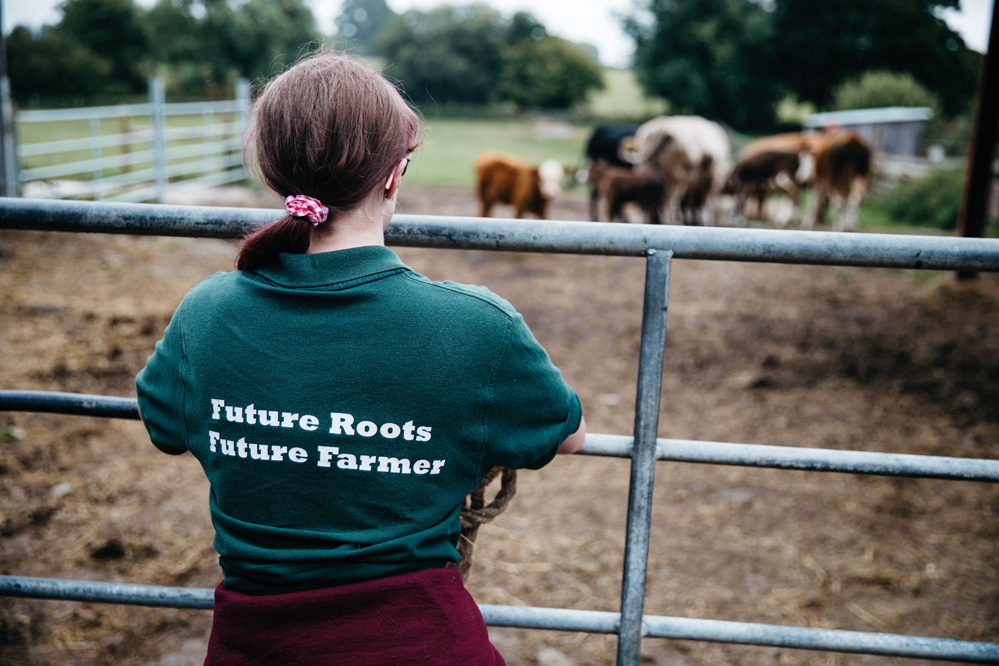
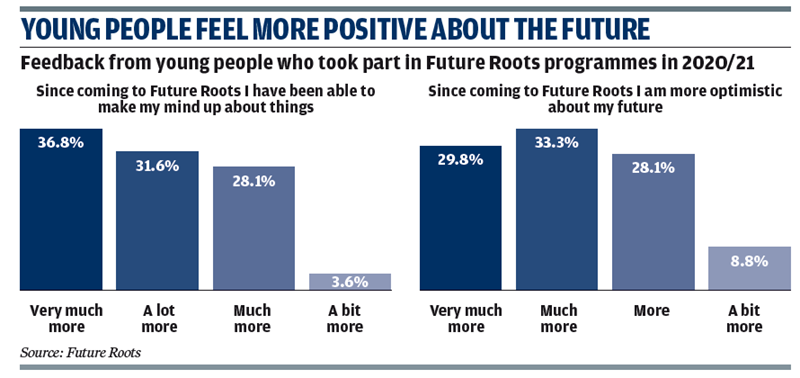
We have less of a relationship with child and adolescent mental health services but really want this to change. This is definitely an area for us to work on.
We spent three years working with Bournemouth University to understand the difference we are making. The research by PhD student Sarah Hambridge concluded our farm-based model helped young people “build key social, life and relationship skills, thus enhancing their chances of remaining in education, employment or training”.
The research identified reductions in conduct problems, hyperactivity, the use of negative coping strategies and mental health issues such as depression, anxiety and stress.
It found increases in personal qualities such as self-confidence, kindness and empathy, improved social skills and relationships with family and friends and that coming to the farm helped young people re-engage with school.
A prime example of a lad who has turned his life around is Jordan. He struggled with mainstream school, made negative decisions, and felt he was not good enough to get a job.
He started attending Future Roots aged 13 and worked hard with our tutor and mentors to gain basic Maths and English and a Level 1 qualification in land-based operations and put his new skills into practice.
He completed his MO1 tractor test at Kingston Maurward College and an apprenticeship through the college and Future Roots. Thanks to work experience at other farms arranged through us Jordan secured a full-time job on a dairy farm where his boss already thinks a lot of him. At 19 he’s not only a hard-working reliable employee but has become a thoughtful and responsible individual.
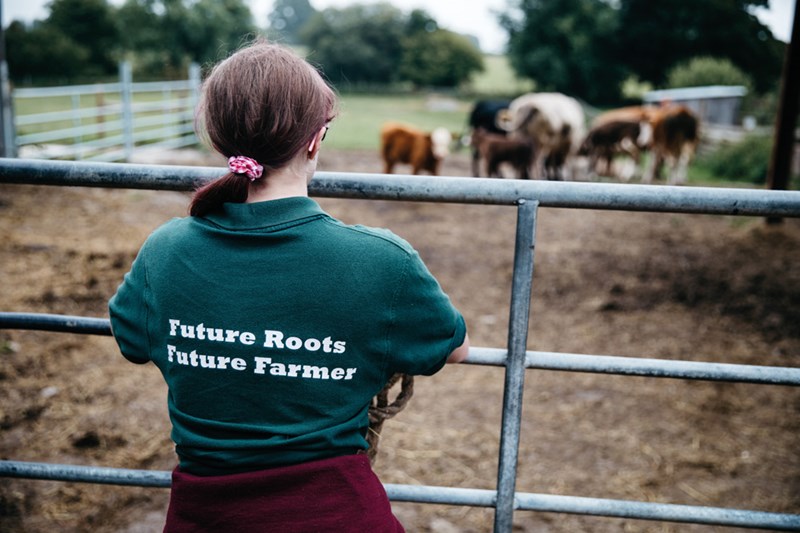
Future Roots’ key goal will always be to give opportunities to young people who are marginalised, excluded, and live with circumstances that make everyday life challenging.
We want young people to leave the farm knowing that they are of value and can lead a positive and fulfilling life.
Not all young people can manage the traditional school environment and schools should have the funding to support alternative provision for all those who need it. This is key to promoting inclusion and achieving the government’s “levelling up” agenda.
Spending time in nature should be seen as important as sports and the arts and should be on offer to all young people.
I think farming is the greatest untapped education, health and social care service. It enables young people to become work ready. It gets them into life.
FACTFILE: FUTURE ROOTS
What is it? A not-for-profit organisation that uses farm and countryside activities to develop young people’s skills and confidence
When did it start? Rylands Farm was purchased by Future Roots founder and former social worker Julie Plumley and her husband James in 2008 to develop a bespoke learning facility
How many young people does it work with? Up to 200 young people aged eight to 18 per year
What services does it provide? A range of different programmes including short schemes for families, short breaks for families of children with special educational needs and disabilities, alternative education for school-age children, short qualifications, transition programmes for Year 6 pupils, forest school sessions and the Futures programme to prepare young people for employment
How many staff? Eleven staff from a variety of backgrounds including social work, teaching, occupational therapy, youth work and sports coaching
How is it funded? Future Roots costs £400,000 per year to run – roughly £2,000 per child. About 70 per cent is funded through schools and local authorities who pay for sessions with the rest from donations and funding bids
‘THE FARM BOOSTED MY CONFIDENCE AND HELPED ME FIND A JOB I LOVE’
Lisa, aged 18, Future Roots participant (pictured below)
I first started at the farm when I was in secondary school. I really struggled with school and never wanted to go in because of how anxious I was. Then the school offered me the chance to go to the farm every Wednesday in return for attending school.
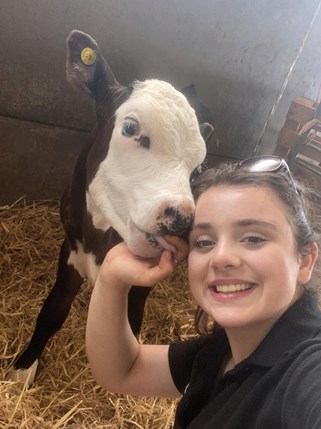 At first I was very nervous about this and the first few weeks of attending the farm I was very anxious and wouldn’t really talk to anyone. But the animals made me feel so calm. For example, when I went to the farm and I was having a bad day I would go over to Alice the pony or Star and Misty the friendliest steers. All other worries would disappear when I was there.
At first I was very nervous about this and the first few weeks of attending the farm I was very anxious and wouldn’t really talk to anyone. But the animals made me feel so calm. For example, when I went to the farm and I was having a bad day I would go over to Alice the pony or Star and Misty the friendliest steers. All other worries would disappear when I was there.
I would feel relaxed even if I was busy out in the fields or helping look after the animals. I would instantly feel so much better. Within a few weeks of being there with the amazing staff, I came out of my shell completely and my confidence just kept growing.
I developed a love for farming. I was only meant to stay at the farm for six weeks but I ended up staying for almost five years. Julie tells you how you are always a part of the Future Roots family even after you leave. I even had my surprise 16th birthday at the farm which Julie very kindly let my family organise and it was the most memorable birthday I have had. I was at one of my favourite places and I could show my family all the animals I would come home and talk about.
With help from the farm, I decided to go to Kingston Maurward College to study Level 2 agriculture. I was so nervous going into this but knowing I could still go to the farm made it so much easier.
Before going to the farm, I would never have deemed this possible. I never thought I would voluntarily continue with education but they gave me the support and advice I needed. With my course you had to have one day of work experience at a farm per week so of course I chose Rylands Farm.
The farm was so good with helping with any work I was struggling with. Whether that was with my GCSE work or my college course later on, they were always willing to help me out and would fill me with confidence.
Over the time I have been going to Rylands Farm I have changed so much. When I first started I wasn’t filled with a lot motivation. I didn’t feel like I would amount to much as I was finding it so difficult in school at the time. However, over the years I have completely turned over a new leaf.
They have instilled confidence and the love of animals in me. They supported me in things I never knew I could do. I honestly do not think I would have made it through school without them. You could not meet a better group of people than those that work on the farm I am forever grateful for what they have given me.
I am currently working as an apprentice dairy farmer and calf rearer while still attending college once a week. I am really enjoying working, the independence I have and the opportunity to gain experience in a job I love.




